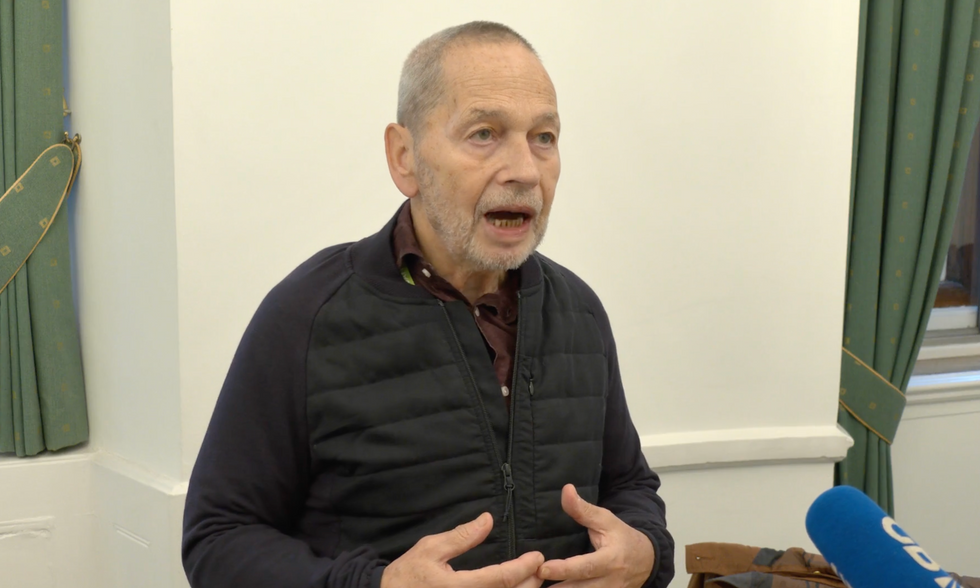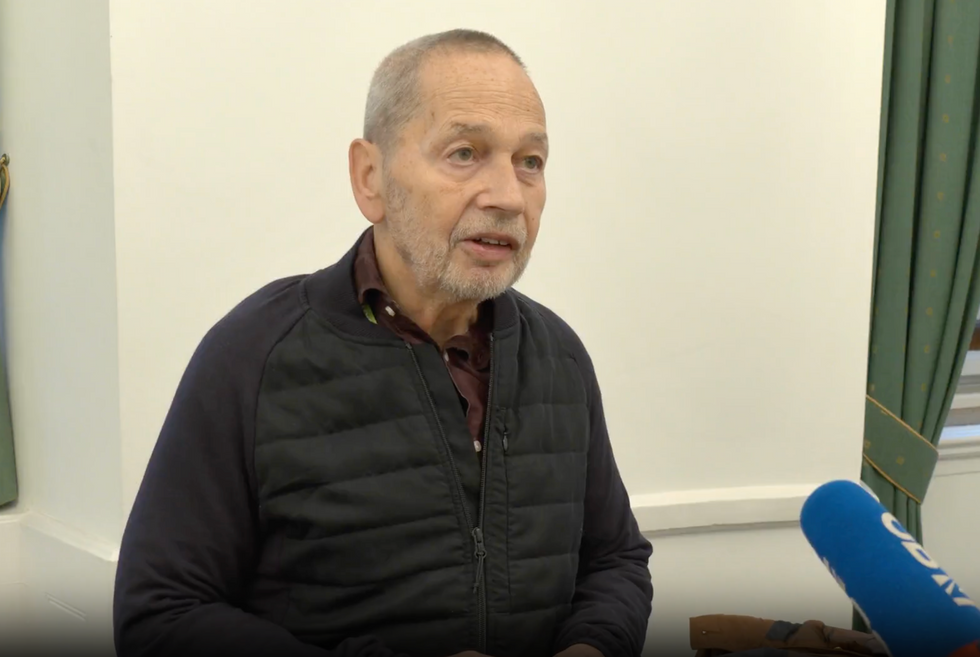Adam Chapman
Guest Reporter

An academic sociologist claims "critical legal theory" has created a two-tier justice system in the UK.
His chilling analysis comes amid an increasingly tense political climate.
Sir Keir Starmer's promise to crack down on "far-right thugs" following the summer riots resulted in around 1,280 arrests, nearly 800 charges and more than 200 convictions.
A boy as young as 12 was convicted of violent disorder, which carries a maximum sentence of five years in prison.
Some had a string of prior convictions; others didn't.
This has led many to believe that the UK has a two-tier justice system - the idea that political pressure leads the justice system to act more leniently toward protests and incidents associated with left-wing causes than those involving right-wing causes.
Starmer has dismissed these claims. Likewise, Met Police chief Sir Mark Rowley has rejected the accusation as “complete nonsense”, adding that it only makes the job of policing harder.

Academic sociologist Frank Furedi is not buying it.
The author of The War Against the Past: Why the West Must Fight for its History, told GB News: "I'm a sociologist. I study institutions. I know that people in the judiciary have been educated in a certain scholarship called critical legal theory."
Critical legal theory, or CLT, is a form of legal scholarship that challenges the idea that laws are politically neutral. CLT scholars argue that laws are written and applied in ways that reflect and support the interests of those who create them.
As Furedi explains, critical race theory (CRT) grew out of the CLT movement and, therefore, promotes many of the same ideas, the most pernicious of all being that society is "inherently oppressive and that certain identities need more protection than others".
These academic frameworks reject the concept of the "marketplace of ideas", which holds that the best ideas win out in a free and open society because the game is rigged.
Proponents of this way of thinking view differences between groups as socially constructed. They call for the existing order to be dismantled and reorganised along more equitable lines.
Critics say that these ideas have run roughshod through society. Many cite the wholesale implementation of equality, diversity and inclusion (EDI) initiatives within the workplace as an example.
The independent Inclusion at Work Panel, appointed by former Business Secretary and Tory leadership hopeful Kemi Badenoch, spoke to more than 100 people in 55 organisations and reviewed the latest research into how employers make decisions about diversity and inclusion policies and practices in the UK.
The panel's report, published in March, found many employers want “to do the right thing” but are introducing measures without the support of evidence. The report concluded that EDI initiatives lead to perverse outcomes, such as hollowing out talent to hit diversity quotas.
What is happening in the judiciary is of a different order of magnitude, argues Furedi.
"It essentially no longer looks at British citizens as having the same problems, same difficulties, same rights but pretty much assumes that they're there to put right certain problems that existed in society. It's an activist form of law-making."
LATEST MEMBERSHIP DEVELOPMENTS
- ‘Can Keir Starmer’s Government really smash the gangs?’
- 'We must define ourselves by what we stand for' - Sir Robert Buckland
- Elon Musk outlines exactly why he's pro-immigration but there's a huge caveat

CLT regards the courts and the institutions of justice as "instruments for expressing certain political and cultural points of view", the sociologist tells GB News.
According to Furedi, this has made the judiciary, which once "prided itself on its independence", more sympathetic to minority groups than white British citizens, adding: "The judiciary has become very politicised."
Does he have a point?
Last week, Lucy Connolly, the wife of a Conservative councillor, was jailed for 31 months after calling for hotels housing asylum seekers to be set on fire on social media. She had no prior convictions.
Days later, the Ministry of Justice confirmed that Peter Lynch, a 61-year-old grandfather jailed for more than two years after he was filmed screaming abuse at riot police outside a hotel housing asylum seekers, had died in prison. It is believed he took his own life.
Compare this with the case of Haris Ghaffar, a teenager who tried to kick down a door during efforts to storm a pub wrongly believed to contain English Defence League members on August 5.
Terrified customers had barricaded themselves inside Birmingham's Clumsy Swan pub as Ghaffar, who was wearing a balaclava at the time, and his angry mob attempted to break in. Last month he was sentenced to 20 months - 11 months less than Connolly.
Then there's the case of Julie Sweeney, a 53-year-old carer from Cheshire who is serving almost two years behind bars after suggesting in a Facebook post to "blow the mosque up with the adults in it" at the time of the riots.
Contrast this with Gabriel Abdullah, 34, who brandished a knife and shouted antisemitic abuse at staff at a kosher supermarket in Golders Green. A judge handed him a suspended sentence.
The resistance
Furedi paints an Orwellian picture, but there are grounds for optimism.
He explained: "I'm very pleased people are asking questions that two or three years ago they would not have. I'm very glad that many people are finding their voice and, for the first time, raising issues and not censoring themselves. There seems to be a feeling in many communities that it's important to raise those issues that were dismissed beforehand.
"People who in the past would have kept quiet about their views on migration or what's happening to our borders now feel much more comfortable openly stating their concerns. There is a new kind of rebellion - a willingness to question the status quo. And I think that's very positive because it allows the possibility for democracy to make a comeback."
If the people start to feel like they have a stake in society again, faith in our institutions will be restored, Furedi says, adding: "Our public life will become richer as a result. Populism is an essential ingredient for ensuring public life really is 'public' rather than a monopoly of a small number of people."
In response to a request for comment, a Government spokesperson said: “This summer's appalling disorder was dealt with swiftly by our courts – and we thank the thousands of dedicated professionals across the justice system who worked tirelessly to achieve this.
"It is a long-standing and vital principle that the Government does not interfere with sentencing decisions made by the independent judiciary who are renowned across the world for their impartiality."
The Courts and Tribunal Judiciary declined to comment.
Find Out More...